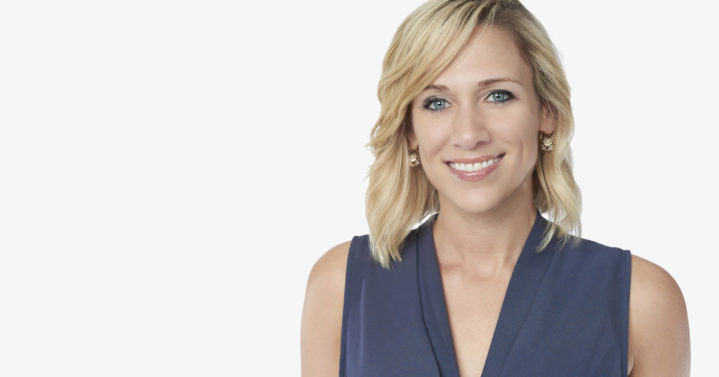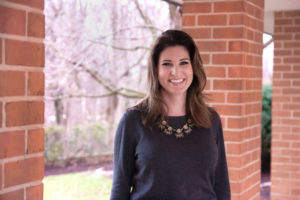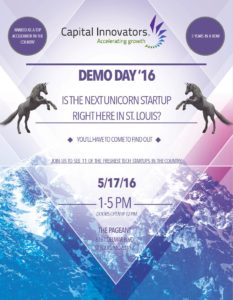
Presented by Maritz
Maritz Improves Business Performance with Innovative Behavioral Science
At its core, Maritz is a people-centered company. Over its more than 120-year history, Maritz has honed and developed its expertise in the science of human behavior. Now, the company is innovating even further with the appointment of its first Chief Behavioral Officer, Charlotte Blank.
At its core, Maritz is a people-centered company. As a St. Louis-based business solutions company that offers incentives, rewards, customer experience, loyalty, employee engagement and events, Maritz makes clear its focus on understanding, enabling and motivating people and behavior with its signature statement, “The science and art of people and potential.”
With more than 100 years of leadership in the motivation industry, Maritz has continued to innovate and invest in the understanding of behavioral science. The company has honed and developed its expertise in the science of human behavior, and now Maritz is innovating even further with the appointment of Charlotte Blank to the position of chief behavioral officer (CBO). Blank’s primary role will be to lead the company’s thought leadership and application of the latest insights in applied behavioral science, primarily through extensive partnerships with leading academic experts pioneering the field.

In appointing a CBO, Maritz joins a growing trend in companies hiring a top executive to focus on behavioral science in business. According to the website Recode, the recent rise of the CBO has developed because companies are becoming more committed to putting the customer first. The article states, “In the modern economy, companies that anticipate pain points and bring certainty and reliable information to the customer experience are rewarded with loyal customers. It should be no surprise, then, that companies that put customer experiences at the center of their products and services are often industry leaders.”
Behavioral research plays a critical role in creating those customer experiences. While behavioral science is at the heart of Maritz’ work, the hiring of a C-suite executive shows its commitment to this science and the research that backs it up, helping it – and its customers – make more strategic business decisions.
Blank explains, “Our goal is to elevate the concept that behavioral science is foundational to everything we do at Maritz. Everything in the company is touched by and grounded in behavioral science. We are helping to power and infuse the latest discoveries in behavioral science throughout the organization and beyond.”
The “beyond” that Blank refers to applies not only to the business applications of behavioral science for Maritz’ own clients but expands to the field of applied behavioral science itself.
“Behavioral science is, in essence, the study of human behavior,” says Blank. “The evolving fields of behavioral economics and social psychology have tremendous potential for application to business solutions in the real world. How do these insights come to light in our evolving business context? What makes the sales leader, the employee or the customer tick? What motivates and engages them? These are the insights we’re looking for.”
Field Research is the New Focus
Many of the existing principles that are currently used in behavioral science today come from lab studies or lean more toward the theoretical. But Blank believes, “There is a lot of opportunity to see how these insights come about in real-world application. The Maritz Field Research Collaborative connects our robust networks on both the academic side as well as our clients across a diverse set of stakeholders. We’re bringing this platform together to conduct field research, and testing insights from the lab in the real world–which is a huge benefit to our clients, and an opportunity for us to learn. From a personal standpoint, I like that we’re contributing to the collective body of knowledge, helping to evolve the field itself of applied behavioral science. There is so much opportunity for real world application, and it’s nice to be a part of that.”
Many of the experiments that Maritz has planned center around determining how to optimize rewards. The research is ongoing, and publishable results will follow once the studies are complete, but Blank offers a couple of examples of the incentives they’re exploring, like giving people the gift of time back in their personal lives or creating social experiences in the workplace and meeting environment. “We are looking at these innovative rewards concepts and measuring how they affect people. Another interesting project we’re working on looks at technology design and the interface of mobile devices and how that influences the way people answer survey questions. The psychological mindset is different when people are on a mobile device versus a desktop, and that has implications for how they answer customer feedback surveys.”
Applying Behavioral Science as a Startup
Blank seems to have found that elusive balance where her personal passions have blended with her professional endeavors. When asked what incentivizes and motivates her, she responded by saying, “I am motivated by learning and intellectual curiosity. I’m a behavioral science nerd. My idea of a beach read is Daniel Kahneman’s ‘Thinking Fast and Slow.’ I’m re-reading it on vacation next week. So, to read and apply this type of material as my job is a really great alignment for me both personally and professionally.”
Maritz has been around for more than 120 years, yet began as a startup and still continues to innovate and stay at the cutting edge of its industry. When asked what advice she would give to startups applying behavior science, Blank offered several nuggets of wisdom.
“Take a people-centered point of view. Anchor whatever it is you’re offering to a higher purpose – tie it to a personal goal for your employees. Create a tribe so that there is a sense of belonging and cohesion.” And keeping with the theme of field research, she suggests, “Embrace the scientific method. Conduct experiments, do pilot testing and controlled trials to see what really works. Startups have an advantage because they’re small and nimble in the beginning. The can get real data very easily.” She adds one last piece of advice, “Test and Learn. A.B.T. Always Be Testing.”
Startups and large corporations alike are invited to participate in field experiments with the Maritz Field Research Collaborative. To begin exploring behavioral insights of your stakeholders, contact [email protected].





